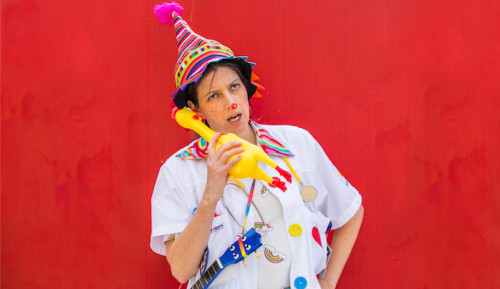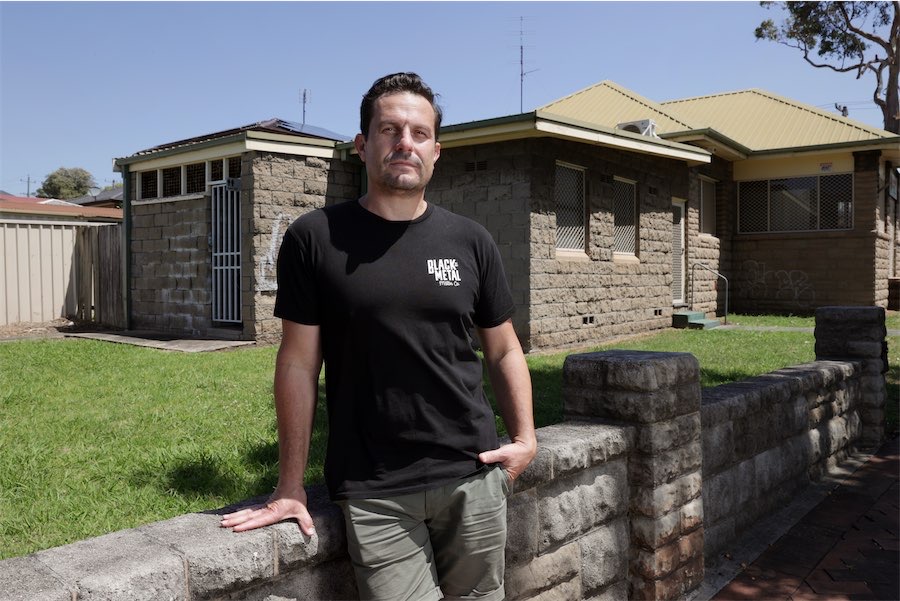
WITH the power to uplift sick kids, make ‘em laugh and brighten the day of anyone she meets in the hospital corridors, writer, actor, producer and improviser Heidi Silberman says she loves using her improv skills as a “clown doctor”.
Heidi, who’s known as Dr Peek-a-Boo when she’s on duty every Friday at the Centenary Hospital for Women and Children, along with her colleagues Dr Sparkles and Dr Snooze, has a self-designed lab coat that twirls, a red nose and rainbow socks, as well as a stethoscope, bubbles, squeaky toys and a ukelele hidden about her person.
“It’s not so different from improvisation in the theatre, in the sense that you’re in the moment, taking whatever idea is thrown at you and running with it,” she says.
“But as a clown doctor we need to have a strong sense of compassion, and be able to connect, not just to the child but to parents, nurses and doctors as well.”
As clown doctoring is still a one-day-a-week job, mum-of-four Heidi, 42, says she also does role playing for the ANU medical school and law school, teaches at the Canberra Academy of Dramatic Art, writes screenplays, having had her first full-length play “White Tulips” accepted into the First Seen: New Works-in-Progress program at The Street Theatre, as well as performing and teaching through Impro ACT.
She says she’s been clown doctoring since September 2014, when the Humour Foundation’s program first started at Canberra Hospital, and knew straight away it was something she’d love to do.
“I’ve been on the other side of the hospital bed myself and I know what it feels like to have a child in hospital,” she says.
“It can be worrying, exhausting and just plain boring at times, and I know that as a clown doctor we could maybe be in that room for 10 minutes, but it gives the child something else to talk about for the rest of the day and it can change the atmosphere in the room completely.
“We’ll start with something but move on quickly if it’s falling flat, until we hit the smile we’re looking for.
“We’ve learned now not to judge ourselves if it feels like nothing is working!”
Heidi says the clown doctors generally work in pairs, both for someone to bounce off and to debrief with.
“There can be hard rooms and sometimes when a patient is experiencing something that my own child has been through, whether asthma, allergies or infections, it can get really tough and I have to tell myself to keep it together,” she says.
“But I love seeing the kids smile – I’m like a human mobile! When I hear a cry, that’s like my pager and I try to go there and see if I can help or divert or just make them smile. Sometimes the crying stops out of their astonishment at the sight of me, and they’re like, ‘what are you?’!
“I love leaving a room a different place to when I entered it. It’s the best feeling.”
Who can be trusted?
In a world of spin and confusion, there’s never been a more important time to support independent journalism in Canberra.
If you trust our work online and want to enforce the power of independent voices, I invite you to make a small contribution.
Every dollar of support is invested back into our journalism to help keep citynews.com.au strong and free.
Thank you,
Ian Meikle, editor




Leave a Reply